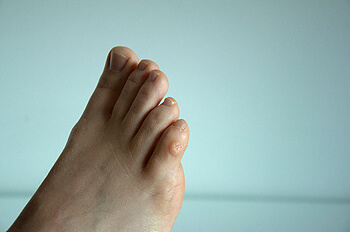Connect With Us
Blog
Friction and Corns

A corn on the foot is defined as a small area of thickened skin. It can form on top of the toes, on the bottom of the feet, or between the toes. Corns are caused by excess friction that can come from wearing shoes and socks that do not fit correctly. Corns that are found between the toes are referred to as soft corns, and constant moisture keeps them soft. Hard corns are often found on the side of the pinky toe, or on top of the toes. This type of corn can cause severe pain and discomfort, and it may be difficult to walk and complete daily activities. Mild relief may be found when a protective pad is worn over the corn, and it is suggested that larger shoes are worn. Some people have medical conditions that can consist of bunions and hammertoes, and corns can develop on top of the affected toes or on the side of the bunion. If you have corns on your feet, please consult with a podiatrist who can effectively treat this type of foot condition.
If you have any concerns regarding your feet and ankles, contact Scott Samera, DPM of Samera / Foot + Ankle. Our doctor will treat your foot and ankle needs.
Corns: What Are They? and How Do You Get Rid of Them?
Corns can be described as areas of the skin that have thickened to the point of becoming painful or irritating. They are often layers and layers of the skin that have become dry and rough, and are normally smaller than calluses.
Ways to Prevent Corns
There are many ways to get rid of painful corns such as wearing:
- Well-fitting socks
- Comfortable shoes that are not tight around your foot
- Shoes that offer support
Treating Corns
Treatment of corns involves removing the dead skin that has built up in the specific area of the foot. Consult with Our doctor to determine the best treatment option for your case of corns.
If you have any questions please feel free to contact our office located in Lake City and Branford, FL . We offer the newest diagnostic and treatment technologies for all your foot and ankle needs.




